The 4th UI International Research Conference
Featured Speakers
Featured Speakers
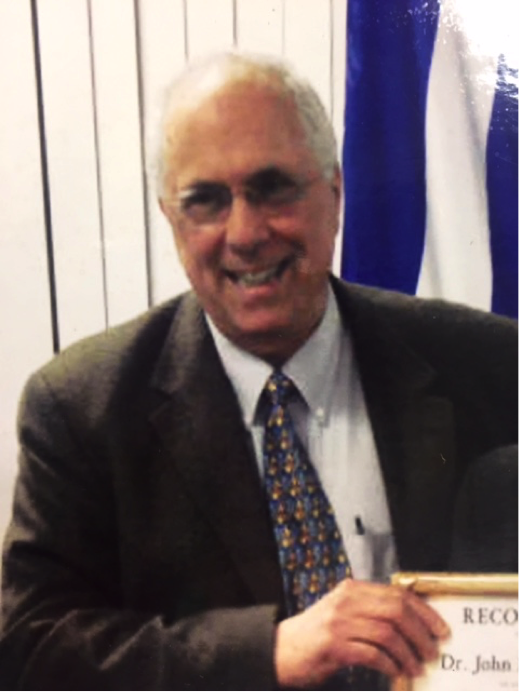
|
John Spiridakis, JD, Ph.D. Professor and Coordinator, Graduate Programs in TESOL & Bilingual Education The School of Education St. John’s University New York City, Rome and Paris Dr. John Spiridakis obtained the MS. and Ph.D. degrees from The Florida State University and a J.D. from Cardozo Law School. He serves as Professor and Coordinator of Graduate level education programs in Teaching English to Speakers of Other Languages (TESOL) and Bilingual Education, in the School of Education. He is responsible for leading the 10 Graduate Education Programs he initiated, including the Distance Learning option for students and Global TESOL courses and field experiences in several countries. He also has led and currently leads several national and state funded projects to prepare and certify Teachers and school administrators in both School Based Leadership and in TESOL or Bilingual Education. He was director of a European Union project to research and improve Greek language education and preparation of Greek teachers across the U.S.A. that included the collaboration of several universities in Europe, Australia, Canada and South America. Dr. Spiridakis has also facilitated partnerships between St. John’s University’s School of Education and universities in China to promote collaboration and exchange programs. He has recently served on a European Union Committees to evaluate Schools of Education and entire universities in Greece. Dr. Spiridakis has numerous publications and presentations at international, national and local conferences in the field of education for language minority groups. He co-authored “Greek in New York City” a chapter in the Multilingual Apple: Languages in a City. |
|
TOPIC Spotlight on A Graduate TESOL Program: Time to Reflect and Reform! In this presentation, the author, a coordinator and project director at the graduate TESOL and Bilingual Education Programs for over 25 years, reflects upon changes in the programs that have attempted to respond to new social, political, economic, technologic and cultural realities, both in terms of structure and implementation. Programs with different pedagogical and curricular formats have been developed and modified over the years in the mission to better prepare an increasingly more diverse cadre of prospective teachers of ESL and EFL, including growing numbers of international students, for state certification and non-state certification tracks. The multicultural and multilingual core of all of the programs has helped the faculty meet the changing demands and expectations of teachers over the past decade, but reflective planning that examines current program assumptions and expectations has become all the more vital. Knee-jerk reactions to political or city/state regulations and standards are normally avoided by the faculty in spite of often ominous, coercive communiqués to the field carrying veiled threats of retribution for those institutions who don’t blindly “toe the line.” Certain international and cross-cultural aspects of the Program’s role in seeking to be relevant and resilient and responsive to constant changes are also discussed in this paper. |
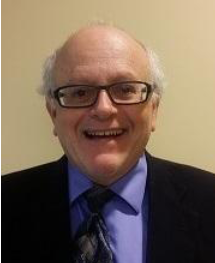
|
Nile Stanley, Ph.D. Associate Professor Childhood Education, Literacy and Teaching English to Speakers of Other Languages (TESOL) University of North Florida, USA Dr. Nile Stanley is a tenured Associate Professor of Childhood Education, Literacy and Teaching English to Speakers of Other Languages (TESOL) at the University of North Florida. He is Graduate Program Director for Elementary Education, Visiting Scholar of Educational Psychology at Shaanxi Normal University in the People’s Republic of China, and Professor and Poet-in-Residence in several Jacksonville schools in Florida. Dr. Stanley is an educator, poet, storyteller, researcher and award-winning published author of books, journal articles, professional articles, videos, and conference presentations He is a founding board member of Hope at Hand http://www.hopeathand.org/ a nonprofit organization that provides art and poetry therapy to at-risk youth populations. |
|
TOPIC Poetry Therapy and Pedagogy for Teaching Language The session will discuss research informed methods using poetry for culturally responsive teaching of language acquisition and resilience. In a follow-up workshop participants will learn to use mini-lessons for providing standards-based instruction |
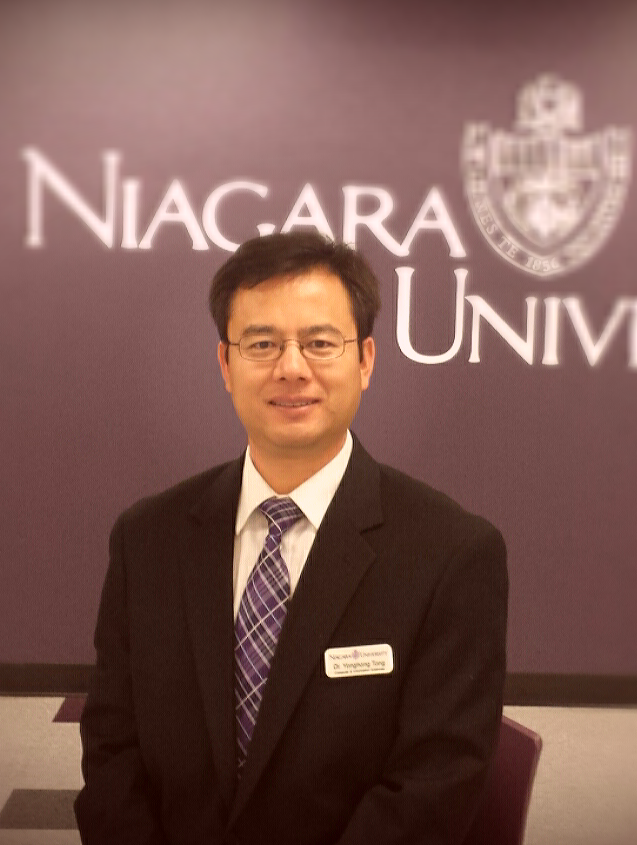
|
Yonghong Tong, Ph.D. Assistant Professor Department of Computer and Information Sciences Niagara University, USA Dr. Yonghong Tong (Ph.D.) is an Assistant Professor of Computer and Information Sciences in the College of Arts and Sciences at Niagara University. He obtained his Ph.D. from University of North Carolina at Charlotte. Dr. Tong’s research areas center on mobile and Web application, information technology use in education, and data visualization. Dr. Tong is currently supervising student research in his focused areas. |
|
TOPIC Online Education with Information and Communication Technologies in American Higher Education Online education with information and communication technologies (ICT) has become a major phenomenon around the world. In America, for example, there are hundreds of online colleges and universities and thousands of online courses available to students. Most American universities offer at least some courses online, and many universities have fully developed online degree programs at both undergraduate and graduate levels. The presenter will discuss the online education with ICT in American higher education, including (1) the present use of ICT in online education, (2) the benefits of using ICT in online education, (3) the challenges of using ICT in online teaching and learning, and (4) the future of ICT in higher education will also be discussed. Online Presentation |

|
Mariam Alamyar A graduate lecturer/ TA in English department, ESL program at Purdue University USA. Mariam Alamyar is a graduate lecturer/ TA in English department, ESL program at Purdue University. She holds a master degree in applied linguistics and her secondary areas are English writing and leadership in Education. Her research interests are English language writing, writing in digital space, sociolinguistics, language controversies, curriculum design, and administration in Education. |
|
TOPIC Background, Culture and Practices of English Language in Afghanistan In this session, I will provide some background information about the status of English in Afghanistan since it gained significance after the downfall of the Taliban regime in 2001. Additionally, I will provide a discussion of the users and uses of English language in different settings, particularly in education. Finally, I will discuss how Afghan Ministry of Higher Education’s plans and policy to use English as the medium of instruction might not be feasible to be implemented in the near future. |
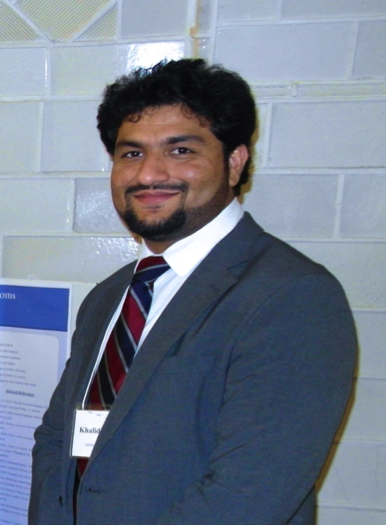
|
Khalid Ahmad Siddiq Assistant Professor of linguistics and the Head of the English Department at Herat University. Khalid Ahmad Siddiq is currently an Assistant Professor of linguistics and the Head of the English Department at Herat University. He holds a Master’s Degree in Linguistics from Indiana State University, USA. He has taught English language, literature and linguistics in Afghanistan for over eight years. His research interests include teaching English as a second/foreign language, NNEST, World Englishes, Phonetics, and Language Variation. |
|
TOPIC Current ELT Methodologies Used in Afghanistan This session addresses the current methodologies and approaches utilized in teaching English in the context of Afghanistan. The presenter specifically discusses some of the common English language teaching (ELT) practices as well as the impetus for those methodological decisions in the Afghan context. He reflects forward and offers pertinent suggestions for teaching and higher education. |
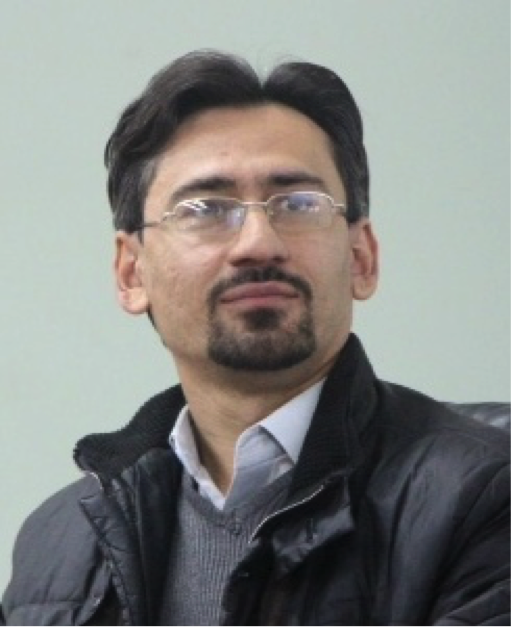
|
Toufiq Sarwarzada Assistant professor of English at Herat University, Afghanistan Toufiq Sarwarzada has been teaching at English Department of Herat University since 2004. He holds a master’s degree in English from Clark University. Beside teaching at Herat University, he has been working as a teacher trainer with different organizations training public schools English teachers. Recently he has worked as the chief editor for Herat ESP project and has edited and published seven ESP textbooks for Herat University. His research interests include literature and language teaching and English for specific purposes. |
|
TOPIC Professional Development among Afghan High School English Language Teachers This session will discuss the findings of a research on attitudes of Afghan high school English teachers towards professional development. Besides, it will look at the professional development opportunities that have been provided for English teachers in recent years. The session concludes with a discussion of professional development needs of Afghan high school teachers. |
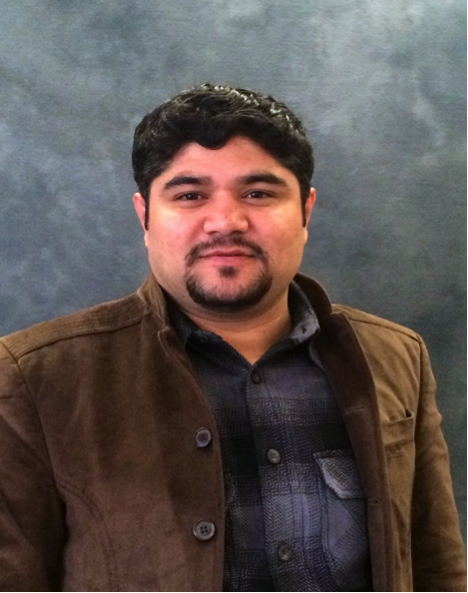
|
Mir Abdullah Miri Professor of English at Herat University Afghanistan Mir Abdullah Miri is professor of English at Herat University, Afghanistan. He holds a master’s degree in teaching English to speakers of other languages (TESOL) from Indiana University of Pennsylvania. His research interests include second language writing, language pedagogy, NNEST issues, and topics related to access and equity. |
|
TOPIC Integrating Writing Activities in Literature Courses: Voices from Five Afghan English Language Teachers The presenter discusses the reported experiences of five Afghan English language instructors with integrating writing activities in literature courses at an Afghan university. He hopes to stimulate other educators to consider incorporating writing activities into various disciplinary courses, and consider the importance of students’ literacy and socialization backgrounds when making pedagogical decisions. |